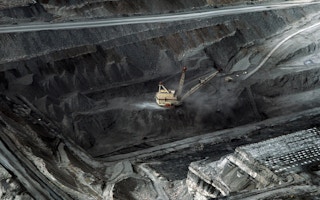In an age of mistrust there’s good reason the voice of the healthcare community continues to carry weight.
Research published this week by The Lancet medical academic journal showing the health impacts of climate change deserve attention.
We should listen when told that climate change is an issue of public health as much as it’s about the health of our planet. They show how our continued reliance on coal is costing lives through air pollution while also driving climate change that will prove damaging to public health in so many ways. This is a poor return from a killer investment.
Analysis included in the research by The Lancet Countdown on Health and Climate Climate, the research collaboration behind the research, shows air pollution from coal plants is responsible for over 1.6 million premature deaths across India, China, Indonesia, South Korea and Japan each year. This figure is for just one type of air pollution attributed to coal and the overall total is likely to be even higher. That isn’t what I would call cheap energy.
— given its role in air pollution and a widescale public health disaster. When my doctor tells me something is bad for my health I tend to listen. It’s due time the finance sector now listens to the warnings about a whole sector.
“
The World Coal Association is aggressively advocating that finance should be directed towards cleaner coal plants. This is economic nonsense when renewables can now support energy needs.
The industry’s smog, acid rain, toxic mercury, and fine particles enter deep into our lungs and no amount of greenwashing can ever change that. Meanwhile profitable solar and wind industries are harmless, generating the stable and consistent returns investors seek.
But the World Coal Association is aggressively advocating that finance should be directed towards cleaner coal plants. This is economic nonsense when renewables can now support energy needs.
While polluting coal plants can be made relatively cleaner they have been, and always will be, factories of death. The industry has contributed to over 800,000 pollution premature deaths annually and planned coal plants would increase such deaths by 130,000 people per year. Coal is causing these deaths across borders in Europe and elsewhere.
Fortunately, investors and utilities are moving capital and shifting portfolios towards genuinely clean energy like solar and wind power.
As the Lancet report highlights, the global solution is a worldwide coal phase out as coal plants cause 44 per cent of global CO2 emissions. We’ve already seen institutional investors rush to drop coal in large part due to its poor financial performance but increasingly also based on pollution and its devastating effects on public health.
Assets that kill don’t make for good investments. Moreover, the Lancet Countdown report adds even greater weight to the body of expert opinion that the coal industry is facing long-term structural decline.
Our funds saw the writing on the wall and began exiting coal in 2013. Two years later the Norwegian Government instructed the trillion dollar Government Pension Fund to pull out of any company with 30 per cent of more of its business coming from coal, which made headlines around the world and was soon followed by Allianz, the world’s largest insurance company which adopted the same coal screen.
The insurance giant Axa has also exited coal. When the world’s largest insurers start divesting from coal, you know the industry is in serious trouble.
The US$80 billion we have under management is just a small slice of the US$1.24 trillion investor equity to have turned its back on this filthy fuel. This increasingly also includes health sector funds as fossil fuel industries harms their members.
As the Lancet highlights, whilst coal is phased out of the energy system, in particular in electricity production, the rapid scaling up of zero-carbon energy production and use will be crucial. Critical renewable technologies for achieving this will be solar, wind and other safe renewables sources like geothermal.
Solar is booming globally, as the International Energy Agency, showed recently—a new era is upon us. The Lancet recognises that renewable energy continues to grow rapidly, mainly from increasing solar and wind investment, most notably in the USA, China and Europe. A solar revolution is also underway in India.
Another remarkable new example of the shift from dirty coal energy to solar and wind is South Korea. President Moon Jae-in is charting a path which other Asian economies are watching closely as the Government seeks to clear the smoggy skies by shutting down dirty coal plants and other sensible measures.
This gives hope in boosting the economy with high returns from both domestic and overseas investments in clean energy infrastructure, which are making billions.
There are hopeful signs from Asia to the Americas - transitioning to clean energy saves lives and avoids financial losses from dying industries.
Jan Erik Saugestad is the CEO Storebrand Asset Management, the largest private pension in Norway with over US$80 billion assets under management, second only in size to the trillion dollar Norwegian government pension fund. The company launched their Plus fund concept in 2016 and recently added a new fossil free fund to it in April 2017. Now Storebrand has total fossil fuel-free funds valued at over US$1.6 billion, a figure which is set to rise. The rate of return on these fossil free investment has been 19 per cent.
* Any views expressed in this article are those of the author and not of Thomson Reuters Foundation.
This piece was published with permission from Thomson Reuters Foundation.











